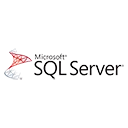SQL Server Extended Events is a powerful and flexible event-handling system that enables you to monitor, troubleshoot, and audit various events and activities within SQL Server. In this introductory guide, we'll explore the basics of SQL Server Extended Events, how to set up event sessions, and provide sample SQL Server code to get you started.
What Are Extended Events?
Extended Events is a lightweight and high-performance event processing system built into SQL Server. It offers a more efficient and flexible way to capture and analyze events compared to the older SQL Server Profiler.
Key Concepts
Before diving into Extended Events, it's essential to understand these key concepts:
- Events: Events are occurrences or states within SQL Server that you want to capture. These can include login events, query executions, errors, and more.
- Event Sessions: Event sessions are configurations that define what events to capture and how to capture them.
- Targets: Targets specify where event data should be stored or sent. Common targets include files, ring buffers, and event files.
Creating an Event Session
To create an Extended Events session, you can use SQL Server Management Studio (SSMS) or write T-SQL code. Here's a sample code snippet to create a basic event session:
-- Create an Extended Events session
CREATE EVENT SESSION MyEventSession
ON SERVER
ADD EVENT sqlserver.sql_statement_completed
ADD TARGET package0.asynchronous_file_target
(SET filename = N'C:\Logs\MyEventSession.xel', metadatafile = N'C:\Logs\MyEventSession.xem');
Starting and Stopping Event Sessions
You can start and stop event sessions using the following T-SQL commands:
-- Start an event session
ALTER EVENT SESSION MyEventSession ON SERVER STATE = START;
-- Stop an event session
ALTER EVENT SESSION MyEventSession ON SERVER STATE = STOP;
What's Next?
With this introduction to SQL Server Extended Events, you're ready to start capturing and analyzing events in your SQL Server environment. You can create more complex event sessions, fine-tune event filtering, and explore various target types to meet your specific monitoring and troubleshooting needs.
Extended Events is a valuable tool for database administrators and developers to gain insights into SQL Server's behavior and performance.

